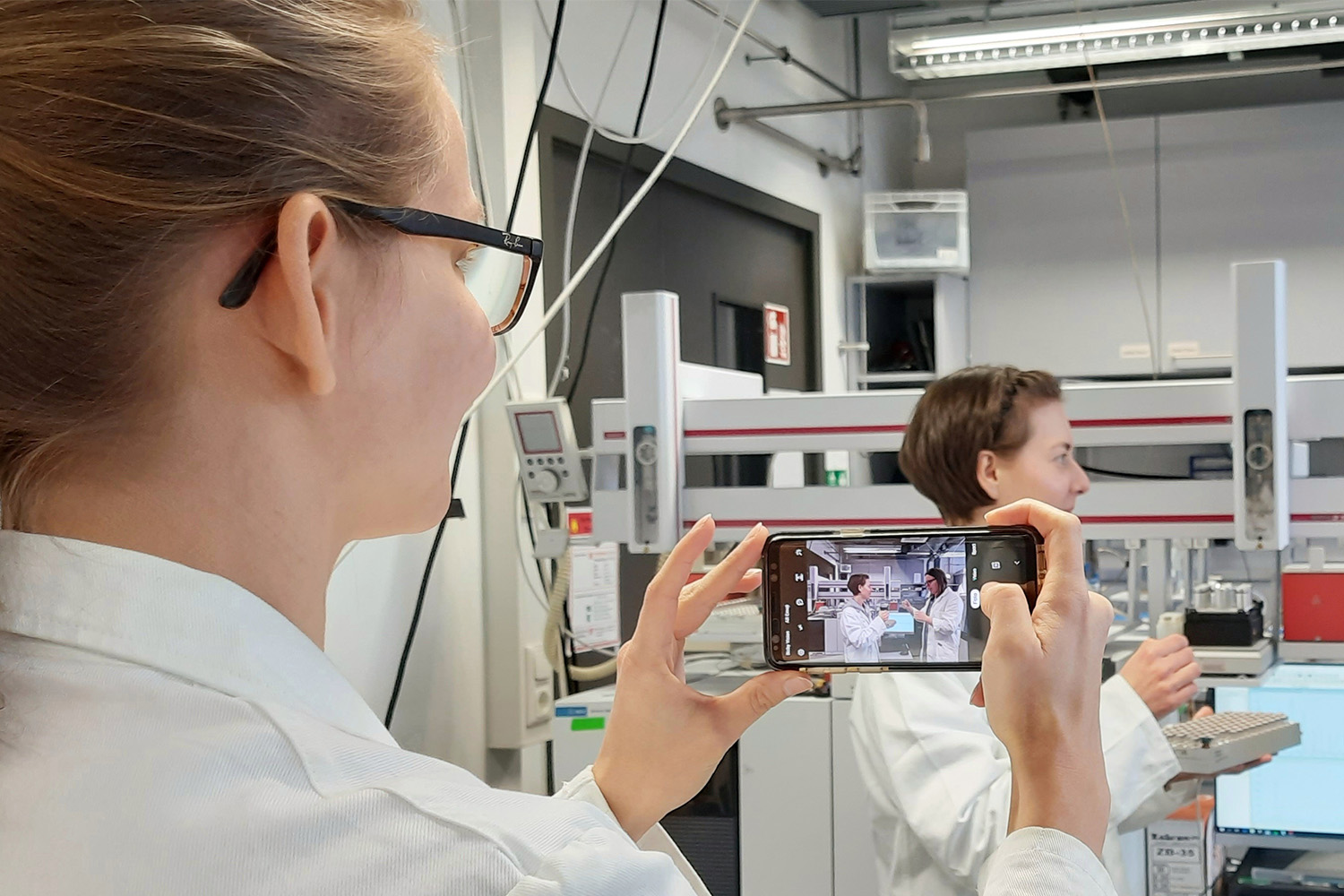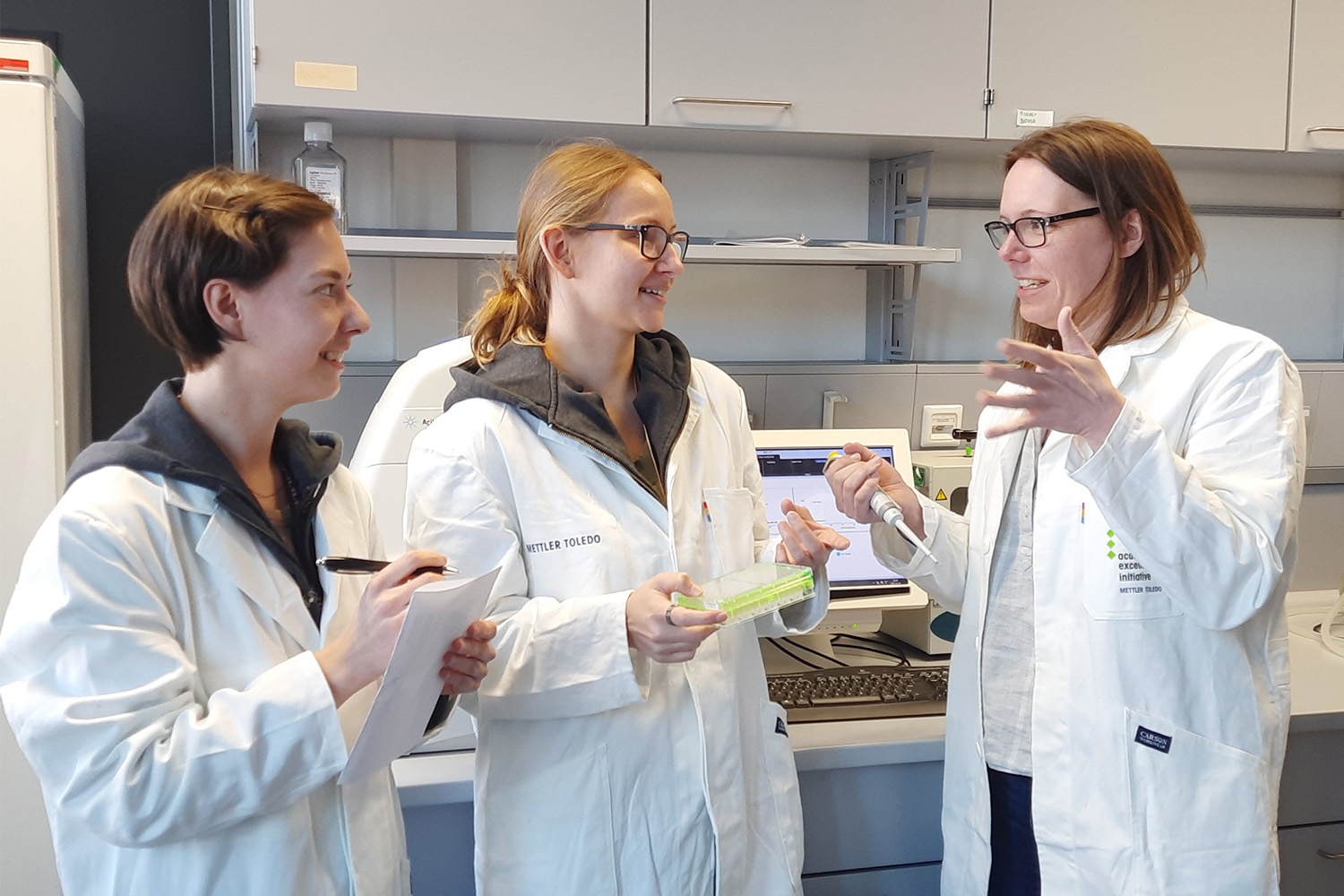“I want to strengthen trust in research”. Master's student Hanna F. Willenbockel on science communication
Hanna F. Willenbockel is studying Biology and working on her Master’s thesis in Professor Thekla Cordes’ group. This research group is based in the Department of Bioinformatics and Biochemistry at the Braunschweig Integrated Centre of Systems Biology (BRICS). There she investigates how the metabolism of immune cells changes during an infection. On the side, she is involved in science communication in the life sciences.

Hanna F. Willenbockel collects video footage for an Instagram post. Photo credit: Antonia Henne
In which way do you deal with science communication?
I work voluntarily at BioWissKomm. The company emerged from an initiative that used a mobile laboratory to introduce pupils and teachers to the exciting world of molecular biology through experiments. Today, scientists and artists work here to present biological topics in a way that everyone can understand. On Instagram, I show – on a voluntary basis – my everyday scientific work. The project is aimed primarily at younger people, such as pupils who are thinking about a field of study.
What made you want to get involved in science communication?
I have been interested in journalism and writing in general for a long time. Then, during my studies, the scientific aspect naturally came into focus. It made me realise how little is generally known about modern science once you leave its circles.

Exchange in the lab: Hanna F. Willenbockel (m.) together with Birte Dowerg and her professor Thekla Cordes (r.). Photo credit: Dr. Mohamed Zakaria Nassef
What role does communication play in your scientific work?
Communication is extremely important in our work. Even though as a student I have only come into contact with a small part of it so far, sharing one’s own research with others is part of everyday life, for example in scientific articles or when applying for third-party funding. Of course, we also talk to each other in the lab, share methods and ideas. As part of the research focus “Engineering For Health”, we can exchange ideas with scientists from different fields in the natural and engineering sciences. This is exciting and opens up opportunities for new collaborations and research approaches.
Social media also gives us the chance to share our work with non-biologists, to show the importance of bioscience issues for the general public and ultimately to increase trust in research.
What do scientists need to communicate successfully about science?
I think the most important aspect is the passion for one’s own field and the will to share this passion and one’s own experiences with others. Even complex content must be explained in such a way that the respective target group understands it, regardless of whether it is a school class or a group of scientists.
